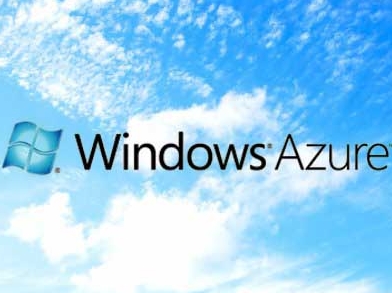 NEWS
NEWS
 NEWS
NEWS
 NEWS
NEWS
![]() Enterprise giants Microsoft and Oracle appear to have put aside some of their differences after announcing a major deal regarding their enterprise cloud services. In a surprise press call yesterday afternoon, the two companies divulged details of an unlikely alliance that was first hinted at by Oracle’s CEO Larry Ellison during the company’s Q4 earnings call last week.
Enterprise giants Microsoft and Oracle appear to have put aside some of their differences after announcing a major deal regarding their enterprise cloud services. In a surprise press call yesterday afternoon, the two companies divulged details of an unlikely alliance that was first hinted at by Oracle’s CEO Larry Ellison during the company’s Q4 earnings call last week.
There are a number of aspects to the new relationship, but the nuts and bolts of it is that Oracle’s database and other software will now be officially “certified” to run on Microsoft’s Windows Cloud, Windows Server, Azure and alongside its Hyper-V technology. What this means in reality is that Oracle’s software will be fine-tuned to run on Microsoft’s servers, with guaranteed support from both companies in the event of any problems.
The deal also brings some licensing changes – specifically, from now on all Oracle licenses will now cover Oracle’s products when run on Microsoft’s Azure, a process called “license mobility” which the companies insist won’t cost customers any more. As of yesterday, Oracle’s software is said to be ready to run on Azure, which means that enterprises can immediately start using instances of Oracle’s database, WebLogic web server and Java. Meanwhile, Microsoft will now start offering fully supported and licensed Java in Windows Azure, together with Oracle’s version of Linux on Azure.
It’s a deal that can only benefit Microsoft’s and Oracle’s customers, but inevitably people will be wondering why these two arch rivals have decided to join forces now. According to industry observers, one theory is that the alliance could be due to Microsoft’s problems with scalability limitations with its SL Server database on Windows – a problem that’s increasingly come to light as more customers move to their workloads to the cloud.
In his analysis on today’s NewsDesk, Wikibon CTO & Co-founder David Floyer said that support would be a real boost for Microsoft in its efforts to take on Amazon Web Services.
“Microsoft wants to grow Azure as fast as possible, and it’s very focused on growing Hyper V as an alternative to VMware, and by gaining full support from Oracle it’s going to be able to do that,” said Floyer.
As for Oracle, Floyer reckons that its primary motivation to get involved with Microsoft is based on its desire to gain a presence in the cloud.
“They clearly understand that this [the cloud] is growing very fast indeed, and AWS and Windows are the fastest of the bunch,” explained Floyer. “So, Oracle needs to support this environment.”
Whatever their reasons, there can be little doubt that Microsoft has strengthened its position in its ‘Cloud War’ with Amazon Web Services. In a blog post written today, Forrester analyst James Staten highlights some of the advantages Microsoft takes away from the deal.
“This deal gives Microsoft clear competitive advantages against two of its top rivals as well. It strengthens Hyper-V against VMware vSphere as Oracle software is only supported on OracleVM and Hyper-V today. It gives Windows Azure near equal position against Amazon Web Services (AWS) in the cloud platform wars as the fully licensed support covers all Oracle software (customers bring their own licenses), and pay-per-use licenses will be resold by Microsoft for WebLogic Server, Oracle Linux and the Oracle database. AWS has a similar support relationship with Oracle and resells the middleware, database, and Oracle Enterprise Manager, plus offers RDS for Oracle a managed database service.”
Not to be left out, Staten claims that Oracle also benefits as it endeavors to provide support for cloud services, which its customers are embracing in droves:
“While this licensing model is limited today, it opens the door to a more holistic move by Oracle down the line. Certainly Oracle would prefer customers build and deploy their own Fusion applications on the Oracle Public Cloud but the company is wisely acknowledging the market momentum behind AWS and Windows Azure and ensuring Oracle presence where its customers are going. These moves are also necessary to combat the widespread use of open source alternatives to Oracle’s middleware and database products on these new deployment platforms.”
Support our mission to keep content open and free by engaging with theCUBE community. Join theCUBE’s Alumni Trust Network, where technology leaders connect, share intelligence and create opportunities.
Founded by tech visionaries John Furrier and Dave Vellante, SiliconANGLE Media has built a dynamic ecosystem of industry-leading digital media brands that reach 15+ million elite tech professionals. Our new proprietary theCUBE AI Video Cloud is breaking ground in audience interaction, leveraging theCUBEai.com neural network to help technology companies make data-driven decisions and stay at the forefront of industry conversations.